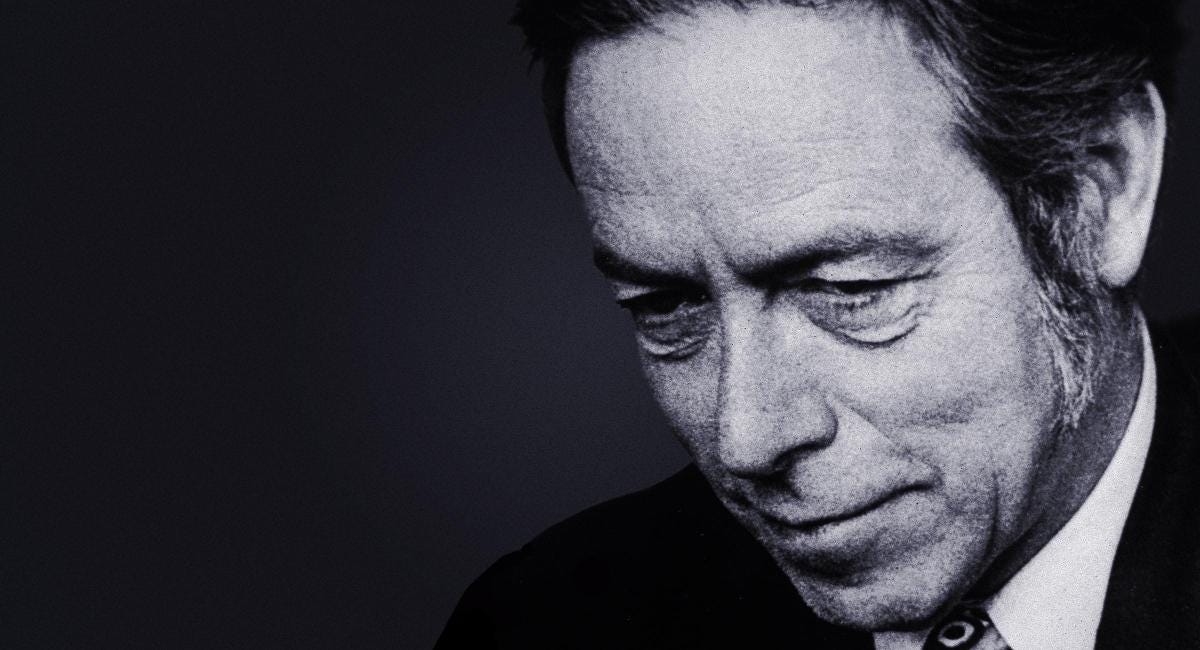Letting Go
Living the art of non-attachment.
It is hard to contend against one's heart's desire; for whatever it wishes to have, it buys at the cost of soul.
—Heraclitus
We all want stuff. Sometimes, that stuff is pretty basic, like a good meal and a warm bed. Other times, it’s deep and existential, like the desire for affirmation and direction in life. We can imagine wanting different stuff, maybe even less stuff, but the idea of wanting no stuff seems absurd. We’re humans, not angels.
So it’s interesting to reflect on the fact that non-attachment—the state of simply ceasing to want stuff—seems to be at the heart of most spiritual traditions. Currently, the Wikipedia entry for “non-attachment” includes separate sections for Jainism, Baha’i, Buddhism, Christianity, Hinduism, Taoism, and Stoicism. Both Eastern and Western wisdom seem to agree that self-fulfillment is to be found in radical self-denial.
Fortunately, spiritual teachers throughout history have not only embodied this ideal; they have insisted that we can too. Particularly within the Buddhist tradition, non-attachment takes center stage and is presented in a clear, compelling light. But what is it about Buddhism that has attracted so many, even in the West, and how does it differ from other approaches to non-attachment? In the 20th century, perhaps no one had more insight into these questions than the late Alan Watts.
Image: Alan Watts, moneyinc.com
Watts had a fascinating background. Alongside a lifelong immersion in Buddhist teachings and practice, he was an ordained Episcopal priest and very influential in introducing Eastern teachings to 1960s counterculture. Although Watts saw value in the spectrum of religious experience, he had a particular interest in conveying the Buddhist ideal of non-attachment. The following story embodies his attempt to make this concept more accessible:
“I knew a little girl to whom someone gave a bunny rabbit. She was so delighted with the bunny rabbit and so afraid of losing it that, taking it home in the car, she squeezed it to death with love. And lots of parents do that to their children. And lots of spouses do it to each other. They hold on too hard and so take the life out of this transient, beautifully fragile thing that life is.
To have it, to have life, and to have its pleasure, you must at the same time let go of it.”
According to Watts, non-attachment is not about ceasing to enjoy life and its pleasures. On the contrary, it’s only by letting go and allowing life to unfold on its own terms that we can experience it in its natural vibrance. From this perspective, we are closest to our loved ones when we allow them to make their own mistakes, just as we most enjoy a beloved pet when we allow it to prance freely. This doesn’t mean that we can never intervene or take part in the action, but when we do, it’s not because we are stubbornly striving for something, and this applies to our own personal development as well.
“What I am really saying is that you don’t need to do anything,” explains Watts, “because if you see yourself in the correct way, you are all as much extraordinary phenomenon of nature as trees, clouds, the patterns in running water… and there is nothing wrong with you at all.” The idea is to align ourselves with the flow of nature; never to struggle against it. And while this simple outlook may take a lifetime to master, Watts emphasizes again and again that it is indeed simple.
This simplicity has a lot to do with Buddhism’s history and origins. According to Watts, “Buddhism is Hinduism stripped for export.” Although Hinduism contains core spiritual insights and practices, it is also a lifestyle, incorporating cultural elements and rituals that are utterly foreign to most. Buddhism was an attempt to strip Hinduism of its culture and ritual, producing a straightforward, universal discipline. Buddhism was designed to be simple.
But if Buddhism’s simplicity is what allowed it to champion the ideal of non-attachment, how should we understand this ideal in the Western spiritual traditions, where ritual and dogma are paramount? Indeed, Watts was concerned that “Western religions are more concerned with behavior, doctrine, and belief than with any transformation of the way in which we are aware of ourselves and our world.” This is probably an overstatement on Watts’ part, and as we will see, there is compelling reason to challenge it, but we can rephrase Watts’s concern and take it as a valuable point of departure: With so much emphasis on things we must accomplish and beliefs we must attain, how do these religions envision non-attachment?
To answer this question, I will now begin a comprehensive survey of the major Western religions, their histories, and their respective approaches to the concept of non-attachment. Just kidding, I’m not doing that. Your time is limited, and I don’t know that much. But what I would like to do is present the thought of a Western sage whose tradition lies at the peculiar nexus of Stoicism, Platonism, and the Abrahamic religions. That sage is the first-century philosopher, Philo of Alexandria.
Image: Philo, thefamouspeople.com
Relative to his influence, Philo is surprisingly unknown. Often considered Judaism’s first philosopher, he found an unexpected fanbase in the early Church Fathers, including Origen and Clement of Alexandria. Through them, Philo’s works set the agenda for most later works of religious philosophy, and his ideas were likely formative for Neoplatonic thought as well. We can, therefore, look to Philo as an ancient seed of Western spirituality, particularly where it integrates Jewish values with Greek modes of thought.
Philo has a lot to say about non-attachment. He compares our embodied existence to swimming in a river, where some are “caught in the swirl of its rushing torrent and swallowed up,” while others rise back to the surface and free themselves. And, in a passage that could have been lifted from one of the Eastern classics, Philo tells us that “it is a weary task to oppose nature.” Rather than swimming against the current, our best hope is to go with the flow. But Philo makes an important distinction.
The above only applies when your goal is some outcome. Did you have your sights set on a particular profession, only to find that you’re pretty bad at it and can’t make a dime? Then it’s probably time to change tracks. But not all activities in life are like a profession. Sometimes, the goal of an activity is the activity itself, and Philo applies this idea even to the weighty subject of Biblical law. The struggle to become more courageous, more compassionate, or more wise is itself a rewarding experience, says Philo, even if we end our journey not far from where we began. In these areas of life, Philo tells us to strive and to strive endlessly, even when the current flows against us.
Is this a departure from the ideal of non-attachment? Watts would probably say yes. Although Buddhism also champions the acquisition of virtue, such as through its Noble Eightfold Path, there is a difference in methodology. “There is no place in Buddhism for using effort,” Watts explains, “Just be ordinary and nothing special.” Watts’ point is that true virtue should not call attention to itself, it should not depart from the flow of nature, and any self-conscious striving after it is likely to end in a stilted self-righteousness. Watts sums it up by citing Confucius: “The goodie-goodies are the thieves of virtue.”
But Philo probably saw things differently. Non-attachment simply means to let go of the results, to happily accept that the river will run its course, wherever that leads. But human beings are not driftwood, and sometimes it’s appropriate to fight the current, not because we want to escape, but on the contrary, because it allows us to feel the current more powerfully.
As a child, one of my favorite games at the beach was to brace myself against the waves until they finally knocked me over. Somehow, it made the ocean feel more familiar—and definitely more fun. In the same way, resisting certain impulses, even natural impulses, can ironically teach us more about ourselves and our place in the world. It also buoys us against self-destructive behavior and the sense that we simply cannot change—a sense that weighed on Watts himself in his personal struggles with alcoholism. And, like throwing yourself into a foaming wave, a joyful resistance makes life more fun.
The value of non-attachment seems to be undebated. Taken in its broadest sense, it might even be one of the few ideas that all spiritual traditions can agree on. Letting go of our preoccupations with wealth, popularity, and any ephemeral attainment frees us up to reflect on what's lasting and meaningful. But we’ve also seen that non-attachment comes in surprisingly different flavors, and a life of letting go might not look the same for everyone. Non-attachment can offer us a guiding principle, a philosophy “stripped for export,” but it can also be embedded within a framework of beliefs and values. In either case, the experience is transformative. In letting go, we find our hands suddenly free—not to grasp for something new, but to reach endlessly for something higher.






“But I extol detachment (Gelassenheit) above any love…love constrains me to love God, but detachment compels God to love me.”
—Meister Eckhart